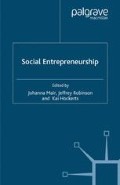Abstract
In 1987, Gro Harlem Brundtland put forward the global objective of achieving sustainable development (UN General Assembly, 1987). She had been tasked by the United Nations General Assembly in 1983 to ‘make available a report on environment and the global problématique to the year 2000 and beyond, including proposed strategies for sustainable development’ (UN General Assembly, 1983). In her report, she explicitly assigned priority to satisfying the essential needs of the poor, such as those for ‘food, clothing, shelter, jobs’, and also to provide them with the ‘opportunity to satisfy their aspirations for a better life’. This should be achieved, however, without ‘compromising the ability of future generations to meet their own needs’ (Brundtland, 1987). Brundtland thus identified the main goal for global efforts to trace a path of balanced social and economic development which was also compatible with a notion of social equity across the dimensions of space and time. Her report left open the question of how such balanced development could be achieved:
No single blueprint of sustainability will be found, as economic and social systems and ecological conditions differ widely among countries. Each nation will have to work out its own concrete policy implications.
Access this chapter
Tax calculation will be finalised at checkout
Purchases are for personal use only
Preview
Unable to display preview. Download preview PDF.
References
Alvord, S. H., Brown, L. D. and Letts, C. W. 2004. Social entrepreneurship and societal transformation: An exploratory study. The Journal of Applied Behavioral Science, 40(3): 260–82.
Austin, J., Stevenson, H. and Wei-Skillern, J. 2003. Social entrepreneurship and commercial entrepreneurship: Same, different or both? Working Paper 04–029, Harvard Business School.
Brundtland, G. H. 1987. Our common future: The World Commission on Environment and Development. Oxford: Oxford University Press.
Bornstein, D. 1998. Changing the world on a shoestring. Atlantic Monthly, 281(1): 34–9.
Dees, J. G. 1998. The meaning of social entrepreneurship. Paper, Center for the Advancement of Social Entrepreneurship, Fuqua School of Business, Duke University, Durham. Available: http://www.fuqua.duke.edu/centers/case/documents/dees_SE.pdf
Easterly, W. R. 2001. The elusive quest for growth: Economists’ adventures and misadventures in the Tropics. Cambridge MA: MIT Press.
Fowler, A. 2000. NGDOs as a moment in history: Beyond aid to social entrepreneurship or civic innovation? Third World Quarterly, 21(4): 637–54.
IOWH. 2005. http://www.oneworldhealth.org. Accessed 5 May 2005.
Johnson, S. 2000. Literature review on social entrepreneurship. Canadian Centre for Social Entrepreneurship, University of Alberta School of Business, Canada. Available: http://www.bus.ualberta.ca/ccse/Publications.
Mair, J. and Martí, I. 2005. Social entrepreneurship research: A source of explanation, prediction and delight. Journal of World Business, forthcoming.
Mair, J. and Noboa, E. 2003. The emergence of social enterprises and their place in the new organizational landscape. Working Paper 523, IESE Business School, University of Navarra.
Schwab Foundation. 2005. www.schwabfoundation.org.
Seelos, C. and Mair, J. 2005a. Social Entrepreneurship: Creating new business models to serve the poor. Business Horizons, 48(3): 247–52.
Seelos, C. and Mair, J. 2005b. Sustainable development, sustainable profit. European Business Forum, (20): 49–53.
Seelos, C. and Mair, J. 2005c. BRAC — Enabling social capability and economic development. Working Paper. IESE Business School, University of Navarra.
Thompson, J., Alvy, G. and Lees, A. 2000. Social entrepreneurship: A new look at the people and the potential. Management Decision, 35(5): 328–38.
Todd, H. 1996. Cloning Grameen Bank. London: Intermediate Technologies Publications, Ltd.
UNDP. 2003. Human Development Report 2003. Millennium development goals: A compact among nations to end human poverty. New York, Oxford: Oxford University Press.
UNDP. 2004. Human Development Report 2004. Cultural liberty in today’s diverse world. Washington: UNDP.
UN General Assembly. 1983. Process of preparation of the environmental perspective to the year 2000 and beyond. Resolution 38/161, 19 December 1983.
UN General Assembly. 1987. Report of the World Commission on Environment and Development. Resolution 42/187, 11 December 1987.
UN General Assembly. 2000. United Nations Millennium Declaration. Resolution 55/2, 18 September 2000.
UN General Assembly. 2001. Third United Nations Conference on Least Developed Countries. Resolution 56/227, 24 December 2001.
UN Millennium Project, 2005. Investing in development: A practical plan to achieve the Millennium Development Goals overview. Washington: UNDP.
United Nations. 2005a. www.un.org/millenniumgoals.
United Nations. 2005b. www.un.org/ohrlls.
Wei-Skillern, J., Battle Anderson, B. and Dees, J. G. 2002. Scaling social innovations: A report from the front lines. CASE Working Paper series 4, Fuqua School of Business, Duke University.
World Bank. 2004. World Development Report 2004. Making services work for poor people. Washington: Oxford University Press.
World Bank. 2005. www.worldbank.org.
Zafar, R. 2005. Interview with authors, March 2005: Barcelona, Spain.
Editor information
Editors and Affiliations
Copyright information
© 2006 Christian Seelos, Kate Ganly and Johanna Mair
About this chapter
Cite this chapter
Seelos, C., Ganly, K., Mair, J. (2006). Social Entrepreneurs Directly Contribute to Global Development Goals. In: Mair, J., Robinson, J., Hockerts, K. (eds) Social Entrepreneurship. Palgrave Macmillan, London. https://doi.org/10.1057/9780230625655_15
Download citation
DOI: https://doi.org/10.1057/9780230625655_15
Publisher Name: Palgrave Macmillan, London
Print ISBN: 978-1-349-54553-7
Online ISBN: 978-0-230-62565-5
eBook Packages: Palgrave Business & Management CollectionBusiness and Management (R0)

